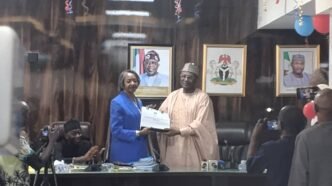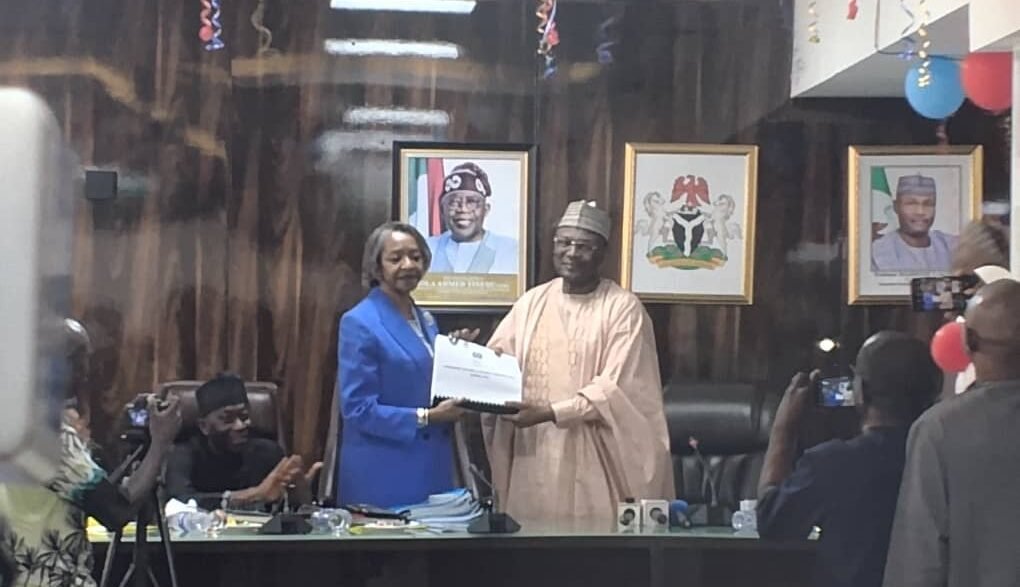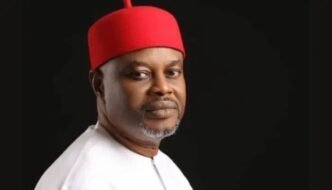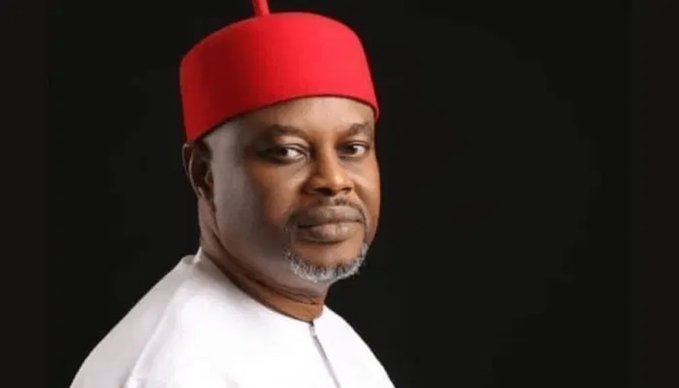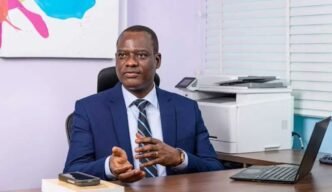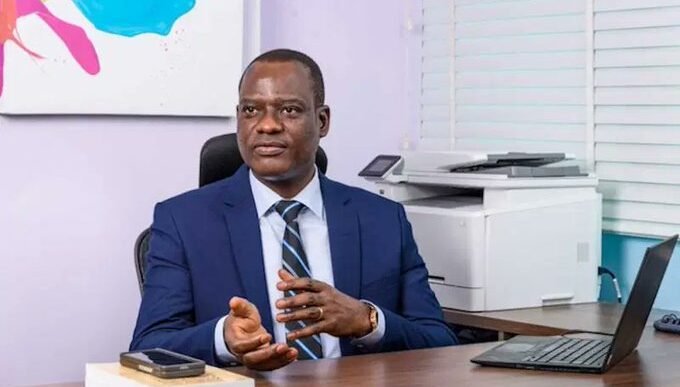The Independent National Electoral Commission (INEC) on Tuesday confirmed that National Commissioner, May Agbamuche-Mbu, has assumed duties as the Acting Chairman of the Commission following the formal handover by Professor Mahmood Yakubu, who is proceeding on terminal leave.
The transition, which took place at the INEC headquarters in Abuja during a stakeholders’ meeting with Resident Electoral Commissioners (RECs), marks a significant moment in Nigeria’s electoral administration as the nation gears up for several off-cycle governorship elections and prepares the groundwork for the 2027 general polls.
Yakubu Hands Over in Line with Constitutional Provisions
Speaking at the brief handover ceremony, Professor Yakubu said his decision to step down was in compliance with Section 306 (1) and (2) of the 1999 Constitution (as amended), which provides for the resignation or disengagement of public officers before the expiration of their tenure.
“Every public office must respect the provisions of the Constitution. As I proceed on my terminal leave, I am confident that the Commission remains in capable hands,” Yakubu stated.
Yakubu, who has served as INEC Chairman since November 2015, officially hands over the reins to Agbamuche-Mbu after nearly a decade of leading Nigeria’s electoral management body through some of the most consequential elections in the country’s democratic history.
Who Is May Agbamuche-Mbu?
Mrs. May Agbamuche-Mbu is a seasoned lawyer, administrator, and advocate for women’s participation in governance. Appointed as a National Commissioner representing Delta, Cross River, and Edo States in 2016, she has served in various capacities within INEC, including as Chairman of the Legal Services, Clearance and Complaints Committee.
A graduate of the University of Reading, United Kingdom, Agbamuche-Mbu was called to the Nigerian Bar in 1986. Before joining INEC, she ran a successful law practice and was also a publisher of The Guardian Woman, a platform that promoted female empowerment and gender equality.
Within the Commission, she has been known for her emphasis on legal compliance, voter education, and transparency in the conduct of elections. Her appointment as Acting Chairman places her at the helm of one of Nigeria’s most critical institutions at a sensitive time for the country’s democracy.
Yakubu’s Legacy: Reform, Technology, and Controversy
Professor Mahmood Yakubu’s nearly ten-year tenure as INEC Chairman will be remembered for significant reforms—particularly the introduction of technology-driven electoral processes such as the Bimodal Voter Accreditation System (BVAS) and the INEC Results Viewing Portal (IReV).
Under his leadership, INEC conducted two general elections (2019 and 2023) and dozens of off-cycle polls, navigating through logistical challenges, security threats, and political pressure.
The 2023 general elections, in particular, were described as the most technologically advanced in Nigeria’s history. However, they also drew sharp criticism over technical glitches and transparency issues, especially concerning the transmission of results.
Yakubu consistently maintained that the Commission acted in good faith and within the limits of technology available at the time, while urging Nigerians to focus on institutional strengthening rather than personalizing electoral issues.
Despite controversies, many analysts credit him with consolidating electoral reforms, improving voter confidence, and setting the stage for future advancements in digital voting and results management.
Transition Timing and Institutional Continuity
Yakubu’s terminal leave comes ahead of several crucial elections, including the Kogi East rerun, the Anambra governorship election in 2026, and other by-elections expected before 2027.
By law, the handover to a National Commissioner ensures institutional continuity and prevents a leadership vacuum that could disrupt the Commission’s operations.
According to insiders at INEC, the handover to Agbamuche-Mbu was “smooth and administrative,” as she has been deeply involved in recent electoral reviews and policy development.
“She has been part of the core leadership team since 2016 and understands the Commission’s internal structure, challenges, and vision. There is confidence that she can maintain stability pending a substantive appointment,” one senior INEC official said.
Reactions and Expectations
The development has sparked a wave of reactions from political observers, civil society organizations, and the media.
The Transition Monitoring Group (TMG), a coalition of civil society organizations, commended the transparent transition process, urging the Acting Chairman to prioritize transparency and stakeholder engagement.
“Mrs. Agbamuche-Mbu is stepping into a very demanding role at a critical time. Nigerians expect her to continue the reform agenda and build public trust in the Commission’s work,” the TMG said in a statement.
Similarly, the Centre for Democracy and Development (CDD) called for the sustenance of technological reforms and stronger enforcement of the Electoral Act 2022.
Political analysts also suggest that Agbamuche-Mbu’s legal background and administrative experience position her well to navigate ongoing electoral litigation and institutional reforms.
Challenges Ahead for the Acting Chairman
Assuming leadership of INEC comes with formidable challenges. Among the key tasks facing Agbamuche-Mbu are:
- Rebuilding Public Trust:
Following contentious elections, INEC’s credibility remains a topic of debate. Restoring public confidence will require open communication, fairness in decision-making, and consistent application of electoral laws. - Technology and Logistics:
The BVAS and IReV remain central to INEC’s operations. Strengthening their reliability and security before the next major election will be a top priority. - Internal Reforms:
As the head of the Commission, she will oversee the continued restructuring of INEC’s logistics, staff training, and procurement systems to enhance efficiency and transparency. - Stakeholder Collaboration:
Coordinating with security agencies, political parties, and civil society groups remains crucial for ensuring peaceful and credible elections. - Preparation for 2027:
With just under two years before Nigeria’s next general elections, Agbamuche-Mbu’s stewardship could shape the early strategic direction of the Commission.
End of an Era, Beginning of Another
Professor Yakubu’s departure marks the end of one of the longest and most eventful tenures in INEC’s history. His era witnessed landmark policy shifts, court battles, and innovations that redefined Nigeria’s electoral landscape.
For Agbamuche-Mbu, her acting tenure offers both an opportunity and a test. As she takes the reins, Nigerians will be watching closely to see how she consolidates INEC’s institutional integrity, strengthens democratic governance, and prepares the Commission for the next electoral cycle.
Her ability to maintain neutrality, transparency, and professionalism could determine whether her leadership—temporary or otherwise—ushers in a new phase of stability and confidence for Nigeria’s electoral process.
Conclusion
The handover from Mahmood Yakubu to May Agbamuche-Mbu signifies a constitutional, procedural, and symbolic transition at INEC. It underscores the Commission’s adherence to governance principles and its commitment to institutional resilience.
As the Acting Chairman, Agbamuche-Mbu’s stewardship begins at a pivotal moment—one that could shape not just the future of INEC, but also the trajectory of Nigeria’s democratic evolution in the years ahead.

